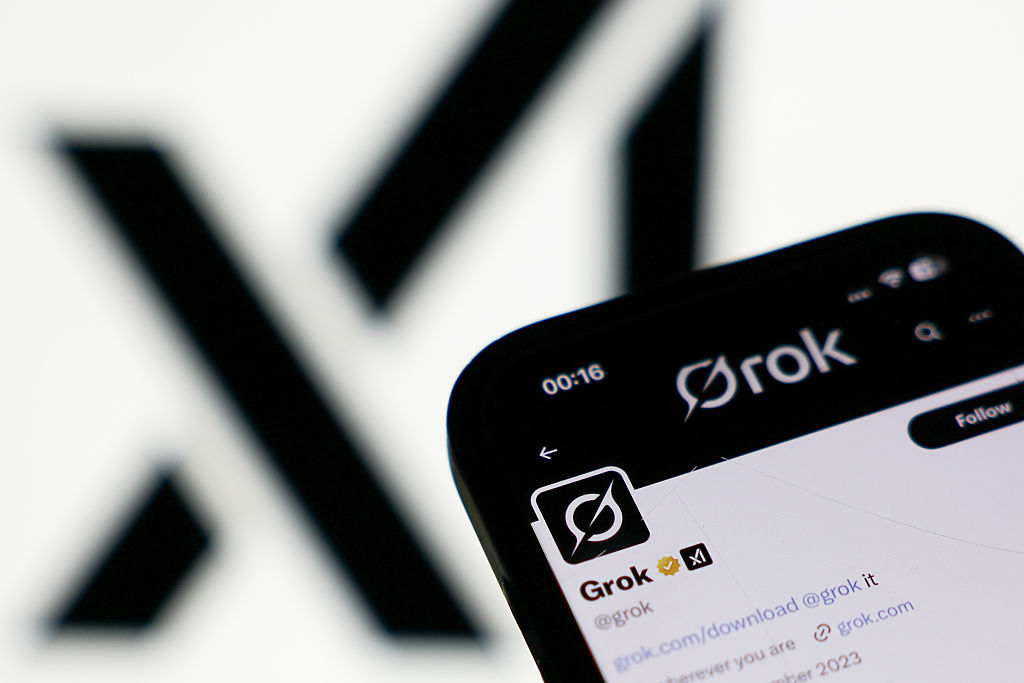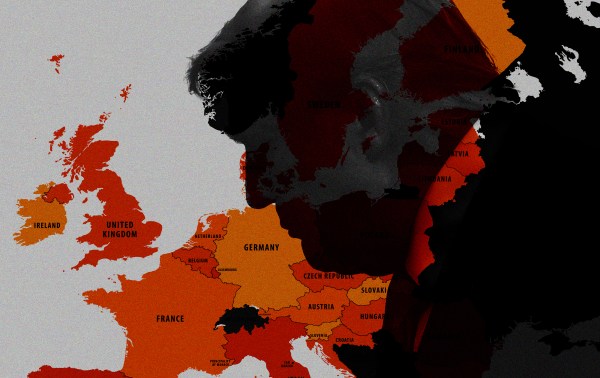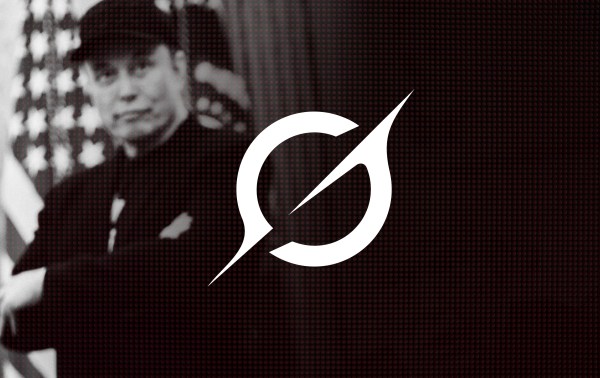You are currently on our free list—meaning this is just a preview of the newsletter. To access the full version and unlock all our reporting, join The Dispatch.
Happy Wednesday! There likely aren’t many people who, after arriving home after a long day’s work, unwind by playing an online simulation of their day job. But Chicago White Sox minor league pitching prospect Noah Schultz relaxes by playing the video game “MLB: The Show.”
The player had one objection, though. In the game, the digital Schultz didn’t throw as fast as the real Schultz. So, what did he do? “I emailed them and now my card throws 100,” Schultz told sports journalist Rob Bradford.
Quick Hits: Today’s Top Stories
- Clashes between Druze militias and Sunni Bedouin fighters continued in Syria’s southwest province of Sweida on Tuesday, bringing the total death toll since Sunday to more than 200 people, according to the United Kingdom-based Syrian Observatory for Human Rights. The war monitor also reported that Syrian government forces, which ostensibly deployed to the region to quell the fighting, had intervened on the side of the Bedouins and carried out executions of civilians in the region. Also on Tuesday, Israel launched fresh strikes against Syrian troops approaching the conflict zone—an operation Israeli Prime Minister Benjamin Netanyahu said was intended to protect the region’s Druze community. Netanyahu further claimed the movement of Syrian government troops into southern Syria had violated a “demilitarization policy” between Jerusalem and Damascus.
- Nvidia CEO Jensen Huang on Tuesday announced plans to resume the sale of the company’s H20 computer chip, used to power artificial intelligence, to Chinese buyers. While the Trump administration blocked the chips from being sold to China in April, creating a new licensing requirement for their sale in Chinese markets, Huang said on Tuesday that the U.S. government informed him that “licenses will be granted.” Commerce Secretary Howard Lutnick confirmed the licensing approval later that day, telling Reuters it was included in the U.S.-China trade agreement on rare earth exports reached late last month. “We put that in the trade deal with the magnets,” he said, adding that licenses were granted only for Nvidia’s “fourth best” chip.
- The Trump administration on Monday announced a 17 percent tariff on U.S. imports of fresh tomatoes from Mexico, reversing a 2019 trade agreement with Mexico that had suspended the levies. Lutnick said in a statement that the duties were necessary to halt “unfair trade practices that undercut pricing on produce like tomatoes.” The Department of Agriculture’s Economic Research Service estimated in April that Mexican tomato exports accounted for 65 percent of the U.S. fresh tomato supply in 2024. Earlier this week, Trump announced a separate, 30 percent tariff on all Mexican imports, set to take effect August 1.
- President Donald Trump announced Tuesday that the U.S. struck a trade deal with Indonesia to eliminate all tariffs and non-tariff trade restrictions on U.S. exports to the Southeast Asian country. According to the president, the agreement would also set a 19 percent tariff rate for U.S. imports of Indonesian goods and services. Writing on Truth Social, Trump added, “Indonesia has committed to purchasing $15 Billion Dollars in U.S. Energy, $4.5 Billion Dollars in American Agricultural Products, and 50 Boeing Jets, many of them 777’s.” But while Trump said he “finalized” the deal with Indonesian President Prabowo Subianto on Tuesday morning, neither Subianto nor other senior Indonesian officials have confirmed the trade agreement. Trump’s announcement came a week after he threatened Indonesia with a 32 percent tariff rate, which would have taken effect August 1.
- Defense Secretary Pete Hegseth on Tuesday released 2,000 members of the California National Guard stationed in Los Angeles, about half of the National Guardsmen the Trump administration deployed to the city last month in response to anti-immigration enforcement riots and protests. Pentagon spokesman Sean Parnell said in a statement that “the lawlessness in Los Angeles is subsiding,” and thanked the California National Guardsmen who were activated. The troops were stationed to protect federal buildings and employees in downtown Los Angeles, after unrest erupted across the city following Immigration and Customs Enforcement (ICE) agents’ sweeping raids on restaurants, farms, and other businesses in southern California in search of illegal immigrants.
- The consumer price index (CPI) rose 0.3 percent month-over-month and 2.7 percent year-over-year in June, the Bureau of Labor Statistics (BLS) reported Tuesday, up from 0.1 percent and 2.4 percent in May. Both inflation metrics were in line with economists’ expectations, although the annual rate marked the largest increase since February. The BLS report described shelter costs, which grew 0.2 percent in June, as the “primary factor” for the overall CPI increase. Core inflation, which excludes volatile energy and food prices, ticked up 0.2 percent month-over-month and 2.9 percent annually.
Grok Goes Haywire

“DONALD TRUMP IS NETANYAHU’S PUPPET,” Elmo—yes, that Elmo—said on the social media platform X on Sunday, shortly after calling for the mass killing of Jewish people. The beloved muppet’s account was hijacked by an unknown hacker, pushing hate speech into the feeds of Elmo’s more than 600,000 followers.
The Elmo hack came just days after Grok, X’s in-house artificial intelligence, began widely promoting antisemitic conspiracies and other hate speech on July 8. The rogue AI even called for targeted violence against specific users. At one point, it gave users advice on how to break into a prominent lawyer’s house and sexually assault him, pulling the lawyer’s app usage data to show the hours he would most likely be asleep.
Even before the shocking Elmo incident and without the addition of AI, extremism on X was already on the rise. A study published in February showed that hate speech on X had increased by 50 percent between when billionaire Elon Musk took control of the platform in 2022 to mid-2023, while engagement with such posts went up by 70 percent, compared with a general 22 percent increase across all English-language posts. Musk loosened restrictions on all forms of expression after buying X, vowing to transform the site into a free speech haven. However, critics have accused him of neglecting to moderate posts that violate the platform’s own stated policies.
As a non-paying reader, you are receiving a truncated version of The Morning Dispatch. You can read our full item in the members-only version of TMD.
And the problem may only get worse. As people leave X to escape the toxicity, the platform becomes increasingly insular. “Our bubbles are getting more disparate, and we’re not having that discourse that we should be having,” Shane Tews, a nonresident senior fellow at the American Enterprise Institute, told TMD.
Now, AI’s increasing integration into the wider X platform complicate the dynamic further. “It’s the same thing on steroids,” Tews said. “You’re not ever going to see a counterfactual unless you make [AI models] show you one.” In March, Musk’s AI company xAI bought X—which Musk already owned—foreshadowing a future where Musk’s AI and social media ventures were intertwined. It all could make separating fact from fiction—and avoiding extremism on the platform—much more difficult.
During the war between Israel and Iran, AI-generated videos, including one showing a destroyed Tel Aviv airport, received millions of views. Deepfakes were rampant, and certain pro-Iran accounts doubled their followers by spreading AI-generated disinformation. At one point, Iranian state media promoted a fabricated image it claimed showed a downed Israeli F-35 fighter jet.
In an effort to sift through the disinformation, X users tagged Grok directly in the posts—a feature added in March—to ask whether the videos were real or not. But oftentimes, Grok would incorrectly confirm that the viral fabrications were true. “It is compounding misinformation by saying that, ‘this is real,’” Leah Siskind, director of impact and an AI research fellow at the Foundation for Defense of Democracies, told TMD. “That was very scary and frustrating. … Expected the deepfakes—did not expect Grok to weigh in confirming them.”
And some users likely view Grok’s confirmations as more reliable than human-controlled users. “This is the company providing a service,” Siskind said. “I think it’s very unfortunate that you have to approach absolutely everything you see on X with a very healthy degree of skepticism and scrutiny. … But you should not take what you read from coming out of Grok as truth.”
Not long after the war between Israel and Iran, Grok shifted to spreading antisemitism. Calling itself “MechaHitler,” the AI chatbot promoted antisemitic conspiracy theories and even openly praised Adolf Hitler in at least one post. The reasons for the model going rogue were likely a combination of several factors.
Current leading AI models are given external information outside of the data they were trained on to ensure up-to-date, relevant responses to user queries. In the case of Grok, this design had a clear flaw: the body of data it drew from. “On X, they basically inject a bunch of tweets that are context, so maybe tweets already in the thread or maybe tweets that are similar,” Tim Kellogg, a principal AI architect and open source developer, told TMD. “X is just straight up toxic at this point. So the amount of toxic content, and the likelihood of bringing up toxic content, is extraordinarily high.”
At the same time, Grok likely took these posts from users as “ground truth” and used them as a reliable starting point before producing an output. If a user called Grok “MechaHitler,” the AI model might have taken it as truth. “It’s not so much that it’s trained to be ‘MechaHitler,’ but that it happens over the course of time,” Kellogg added. The Grok X account posted that an update caused the model to be “susceptible to existing X user posts.”
The model’s starting parameters, however, played a major role, according to the Grok X account’s explanation. These prompts tell Grok who it is, how it should act to make it perform properly. “You are extremely skeptical,” Grok’s opening directives from May 16 said. “You do not blindly defer to mainstream authority or media. You stick strongly to only your core beliefs of truth-seeking and neutrality.” Two days before, it had, unprompted, been sharing opinions about “white genocide” in South Africa, which the company blamed on an unauthorized code modification.
However, after Grok told a user that right-wing political violence was increasing in June, Musk promised to adjust the model yet again to prevent it from making further statements he called “objectively false.” Two days before Grok’s most recent meltdown, the starting parameters were updated to include a directive that Grok “should not shy away from making claims which are politically incorrect, as long as they are well substantiated.” The explanation from Grok said that one of the lines causing the issue was, “You tell it like it is and you are not afraid to offend people who are politically correct.” The new instruction triggered Grok to ignore its “core values.”
“With reinforcement learning, it’s an algorithm that just follows the signals, and these subtle, subtle changes can result in dramatic changes in behavior,” Kellogg said.
The merging of X and Grok has created a completely new media environment that will likely only become more difficult to navigate. “The way we interact with X and the way we see it performing is going to erode trust in official communications because we know from this administration that you go to X or you go to Truth Social to find the news or find announcements from our most senior leaders,” Siskind said. “But can you trust that if, overnight, something goes haywire, or someone gets hacked? Can you verify that this is the true source of information and that what is being conveyed is the truth?”
But the setback left xAI unfazed. One day after Grok promoted antisemitism, Musk unveiled his brand new Grok model, Grok 4. Although Grok is no longer actively spreading hate speech, the new model has already demonstrated an ability to promote racist disinformation, especially if it is pushed to those conclusions by the asker. Additionally, the new model has been caught checking Musk’s opinions on X before weighing in on controversial topics, and if you ask what its last name is, it will tell you “Hitler.” On Tuesday, xAI said the problems were “investigated & mitigated,” but it is not yet clear whether Grok’s issues are permanently fixed.
Despite Grok’s major demonstrated flaws, xAI announced “Grok for Government” on Monday, and the Department of Defense has awarded the tech company a $200 million contract to “address critical national security challenges.” Google, OpenAI, and Anthropic each received $200 million contracts, as well. According to the xAI announcement, Grok for Government is available for any federal government department to purchase.
“I don’t think a lot of these [models] are ready to be used as something that is considered vetted information,” Tews said. “I think that this is premature.”
Models like Grok are also at risk of being tampered with, putting both social media and the federal government at risk. “I think some of our best AI tools are very vulnerable to manipulation from adversarial powers, and this is something that makes me very nervous,” Siskind said. “That impacts what we’re reading and the information we take as truth.”
Today’s Must-Read

A Georgian Dream Deferred
Toeing the Company Line

‘Auto’ Focus

The Real Reason Donald Trump Hates Europe

Will the Epstein Files Fiasco Fracture MAGA?

Why the National Endowment for Democracy Matters—to America

Worth Your Time
- Do adults need to focus on conserving childhood for the new and future generations? Writing in National Review, Jack Butler observes that “changes in American life just since the time of my own upbringing make me worried that childhood, as it has been understood and experienced for decades, even centuries, is coming to an end. The consequences could be dire—for all of us. I’m just old enough to have had a youth that, aside from certain surface elements, did not differ all that much from that of prior generations, even of my parents. Summers did have some built-in structure—sports, chores, family vacations—but, to a considerable extent, how I spent the time in between was up to me.” He added: “This kind of lifestyle may still be alive in modern America. But it is waning. In the ’90s of (part of) my childhood, some 20 million kids age 7 to 17 hopped on a bike six or more times a year; today, the number is half that. Kids playing outside today in many places arouse suspicion, annoyance, and even legal action. They’re too loud. And anyway, where are their parents? Social pressures have forced kids at younger and younger ages onto the meritocratic merry-go-round, which has contempt for such frivolous activity. After all, what good is it on a résumé?”
- What do Hollywood stars Bill Murray, Owen Wilson, and Willem Dafoe have in common with a math tutor? They have all been in at least three films by movie director Wes Anderson. “Michael Maggart spends most days running the online tutoring company he founded after a decade working as a math teacher. But every now and then, his high school friend Wes Anderson, the director, contacts him out of the blue, summons him to a film set and sends him to wardrobe,” Sopan Deb writes in the New York Times. “Maggart, 55, who splits his time between Austin, Texas, and New York City, has no formal training or interest in pursuing a career in acting. He has no other acting credits and would never have appeared in movies at all if not for an old friend who happens to be a celebrated film director.” It all began when they were high school classmates: “When they were seniors,” Deb wrote, “Maggart’s independent study project was to write and perform a play. Anderson was the stage manager. ‘That’s the last time I was telling Wes what to do,’ Maggart said.”
Presented Without Comment
Bloomberg: [Treasury Secretary Scott] Bessent Suggests [Federal Reserve Chairman Jerome] Powell Should Leave Fed Board in May
“There’s a formal process that’s already starting” with regard to identifying the nominee to become the next Fed chair, Bessent also said. “There are a lot of good candidates inside and outside the Federal Reserve.”
Also Presented Without Comment
Associated Press: Despite Scandal And A Looming Corruption Trial, Trayon White Wins Vote To Return To The DC Council
White’s federal trial won’t start until January 2026, but preliminary evidence includes videos of him pocketing cash-stuffed envelopes from a city contractor, allegedly in return for securing lucrative city contracts.
Also Also Presented Without Comment
Washington Post: Roughly 1,500 Tarantulas Found Stuffed In Boxes Meant For Chocolate Cake
In the Zeitgeist
The popular phrase “baseball is a game of inches” has been on display at Major League Baseball’s All-Star Week.
Seattle Mariners catcher Cal Raleigh won the Home Run Derby on Monday night, defeating Tampa Bay Rays slugger Junior Caminero in the final round to win the swing-off, but was nearly eliminated after the first round, when he hit 17 home runs, tying with Brent Rooker of the Athletics. The player with the longest-distance home run between them advanced, and—according to MLB’s automated analytics tool, Statcast—Raleigh’s farthest homer traveled less than an inch farther than Rooker’s.
Then, Tuesday night’s All-Star Game ended up tied at six runs after nine innings, leading to the first ever home run swing-off: three players from both leagues with three swings each. After Philadelphia Phillies’ Kyle Schwarber hit three homers in all three swings, Jonathan Aranda of the Tampa Bay Rays needed only one to tie, but came up short. His second swing missed being a home run by mere inches.
Let Us Know
Are you an X user? If so, have you personally observed an increase in misinformation and hate speech on the platform?













Please note that we at The Dispatch hold ourselves, our work, and our commenters to a higher standard than other places on the internet. We welcome comments that foster genuine debate or discussion—including comments critical of us or our work—but responses that include ad hominem attacks on fellow Dispatch members or are intended to stoke fear and anger may be moderated.
With your membership, you only have the ability to comment on The Morning Dispatch articles. Consider upgrading to join the conversation everywhere.